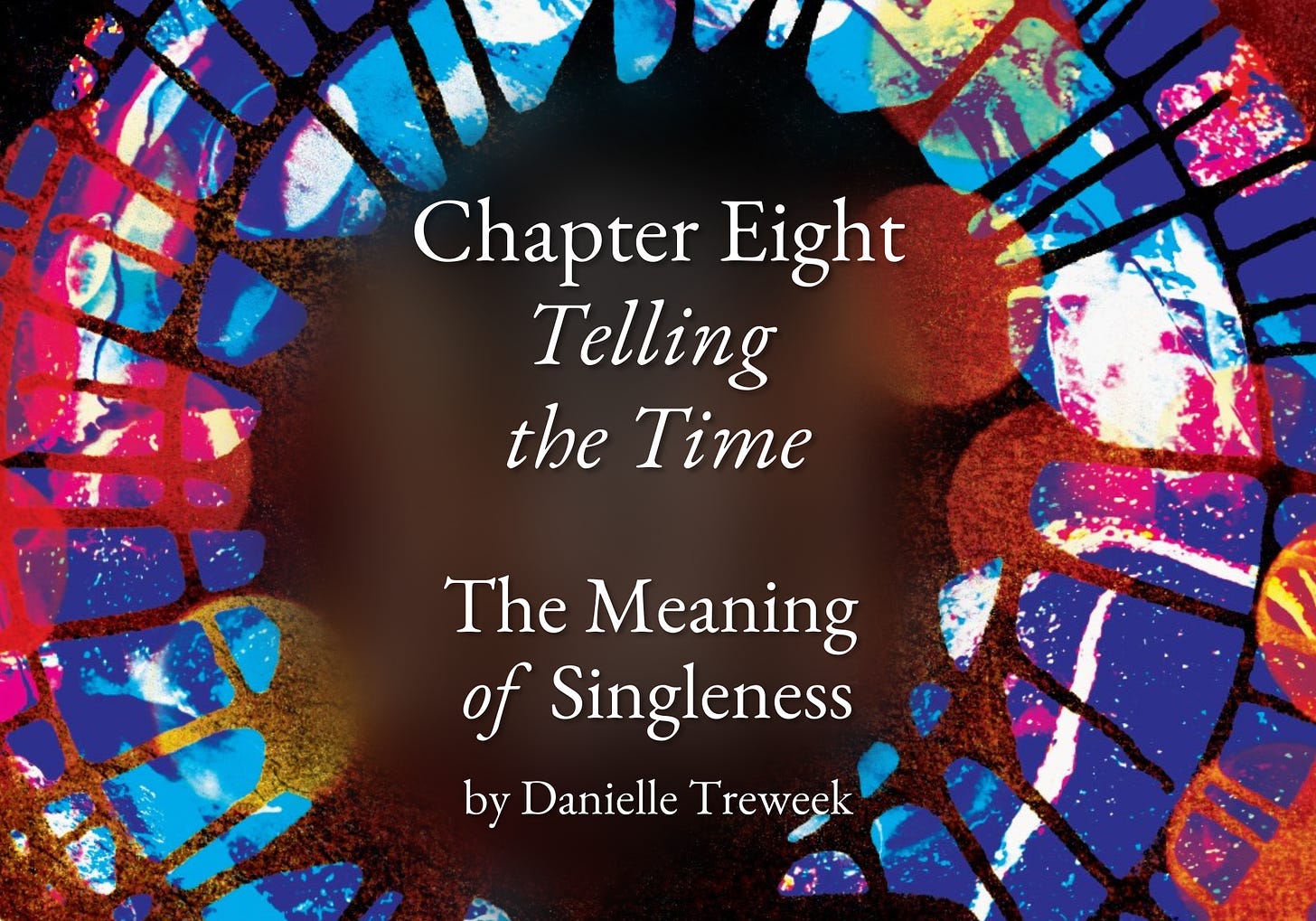My upcoming book, The Meaning of Singleness, will be published by InterVarsity Press on May 9, 2023. In the lead up to its release, I’m sharing a short weekly excerpt, chapter by chapter.
You can pre-order or see more information about the book (including its full contents page, endorsements & a free sample chapter) here.
Chapter Eight: Telling the Time
“The proposition that God is the sovereign Creator who actively fashioned this world and all who inhabit it is fundamental to the Christian faith. As a doctrinal premise, it provides robust grounding for appeals to “nature” in the determination of how human creatures ought to conduct ourselves in this creation. And yet, equally fundamental to the Christian faith is the conviction that this creation has always had a teleological goal, a divinely ordered end to which it is being inexorably drawn (e.g., Is 65:17; Rom 8:18-21; Rev 21:1-4). Not only is Jesus the centerpiece of creation’s telos, but the resurrected Christ is its first fruits. As Oliver O’Donovan contends, it is in him that we perceive the “historic telos of the origin, that which creation is intended for and that which it points and strives towards.”1
However, the conviction that creation has always had a teleological destiny, accomplished—though not yet finally—in Christ’s resurrection from the dead, introduces a tension of continuity and discontinuity into life in the here and now. Jesus’ birth, ministry, death, and resurrection are divine actions of both innovation and continuation. In the first instance, the Messiah has not simply disclosed something more, something previously unperceived and hidden about what has always existed. Rather, he has actually executed something new in what exists. With his birth, life, death, and resurrection real and novel change has even now been enacted within the trajectory of this creation. And yet, this christological disruption remains entirely related to and consistent with what has always been. As Andrew Errington concludes, while it is “something profoundly new, it is . . . [not new] in the sense of being wholly unrelated to what has come before.”2 Jesus’ creaturely birth affirms the goodness of God’s creation. Jesus’ creaturely death secures the redemption of God’s creation. Jesus’ new-creaturely resurrection testifies to the transformation of God’s creation. The end is both different to the beginning, and yet teleologically consistent with it.
Such a theological reality imbues ethical action in the present—the time that exists between the inauguration of the new creation and its final consummation—with some degree of complex ambiguity. It begs the question of what right living means for those who are already new creations in Christ (2 Cor 5:17), but whose ethical action, for now at least, is enacted within the realm of this current creation. Herein lies a creative and eschatological tension, even among those who commonly assent to the definitive significance of the resurrection for Christian moral action.”
Taken from The Meaning of Singleness by Danielle Treweek. Copyright © 2023 by Danielle Elizabeth Treweek. Published by InterVarsity Press, Downers Grove, IL. www.ivpress.com.
I’m committed to keeping all the content I publish here FREE. I won’t ever charge for it. However, I rely on the generous financial support of people who value my writing and ministry to allow me to keep doing it.
If you would like to financially support my ministry, you can make a one-off or regular gift by clicking on the image link below.
Oliver O’Donovan, Resurrection and Moral Order: An Outline for Evangelical Ethics, 2nd ed. (Leices- ter, England: Inter-Varsity Press, 1986), 55; emphasis original.
Andrew Errington, “Living the Meantime: An Outline of Christian Ethics,” Luke’s Journal 23, no. 3 (2018): 8.



